By Wayne Gillam | UW ECE News
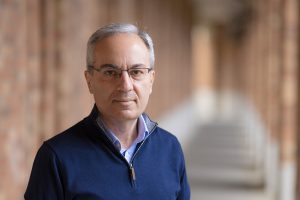
UW ECE Associate Professor Payman Arabshahi, who is the Department’s associate chair for education and industry liaison, has been named site director and principal investigator at the UW for the NSF’s new Center for Soil Technologies, which is known as SoilTech. Arabshahi brings a wide range of engineering experience and an established track record of successfully leading large, multidisciplinary research teams. Photo by Ryan Hoover
Healthy soils are foundational to our quality of life, providing us with food and fiber for clothing, materials and surfaces for building shelter, and even a natural filtration system for the water we drink and the air we breathe. Soil forms the basis of complex ecosystems that support countless living organisms across the planet. Much of the ground beneath our feet is literally teeming with microscopic forms of life. But as important as soil is, there currently is a lack of knowledge among scientists and engineers about many key aspects of soil and how changes in variables such as moisture and organic content can affect its health and stability over time.
To help address this knowledge gap, the National Science Foundation recently launched the Center for Soil Technologies, or SoilTech, with a five-year, $3 million grant. SoilTech is a joint research effort between the University of Washington, the University of Southern California, Iowa State University, and the University of Connecticut. Mahta Moghaddam, Distinguished Professor and Ming Hsieh Chair in Electrical and Computer Engineering at USC, is Center director and principal investigator. SoilTech will be the first of its kind to develop in-situ and remote sensing and analysis tools that can share real-time soil dynamics data with the scientific community and the nation at-large.
Healthy soil is crucial, whether it’s for food production, clean water, construction material, antibiotics that are used to fight diseases, or addressing climate change. Our research will help us to better understand how to keep our soils healthy, vibrant and alive. — UW ECE Associate Professor Payman Arabshahi
UW ECE Associate Professor Payman Arabshahi, who is the Department’s associate chair for education and industry liaison, has been named SoilTech site director and principal investigator at the UW. Arabshahi brings a wide range of engineering experience and an established track record of successfully leading large, multidisciplinary research teams collaborating across an array of different types of organizations and institutions.
“We’ve never had such a center in the U.S. that brings industry and academia together to work on soils in such a focused way,” Arabshahi said. “Our aim is to generate breakthrough research that comes from enabling a very close, sustained engagement between industry, academia and government.”
Arabshahi’s SoilTech co-investigators at the UW include fellow UW ECE Professor Joshua Smith, who holds a joint appointment in the Paul G. Allen School of Computer Science & Engineering, Professors Pedro Arduino and Faisal Hossain from the Department of Civil & Environmental Engineering, and Professor Mehran Mesbahi from the William E. Boeing Department of Aeronautics & Astronautics. Other UW faculty members such as UW ECE Assistant Professor Akshay Gadre and Assistant Professor Brittany Johnson from the School of Environmental and Forest Sciences are also expected to participate.
At the UW, SoilTech researchers will be focusing on soil modeling, wireless soil sensor networks, ambient energy harvesting, sensor development and space-based remote sensing. The research team will also have access at the University to world-class resources and collaborate with facilities and organizations relevant to the study of soil and the environment, such as the Applied Physics Laboratory, the Clean Energy Institute and the Cooperative Institute for Climate, Ocean, and Ecosystem Studies.
An industry-academic partnership
SoilTech is part of the NSF’s Industry-University Cooperative Research Center program, which is aimed at accelerating the application of basic university research to meet industry needs, enhancing American innovation and developing a skilled, high-tech workforce. The Center currently has 15 participating industry members, including large companies such as Corteva, Bayer Crop Sciences and John Deere, and government agencies such as NASA and the U.S. Geological Survey’s National Innovation Center.
SoilTech will also be implementing practical and hands-on education for students across its four academic institutions that synergizes with its research efforts. At the UW, this will include involving undergraduate, graduate and doctoral students in SoilTech research and incorporating SoilTech projects into already existing programs such as ENGINE, UW ECE’s innovation and entrepreneurship capstone program, which Arabshahi oversees. SoilTech at the UW anticipates partnering with student organizations such as the National Society for Black Engineers, The Society for Hispanic Professional Engineers and A Vision for Electronic Literacy & Access (AVELA) to help ensure the inclusion and participation of those from underrepresented minority groups. Arabshahi also plans to form a campus-wide interdisciplinary soil research group, which will bring students together from across the University to participate in SoilTech research and education programs.
“Healthy soil is crucial, whether it’s for food production, clean water, construction material, antibiotics that are used to fight diseases, or addressing climate change,” Arabshahi said. “Our research will help us to better understand how to keep our soils healthy, vibrant and alive. And through our close partnership with industry, we’ll be able to take this work much further than we normally would be able to, making a significant impact in the world.”
SoilTech co-investigators at the UW
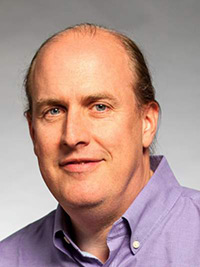 Joshua Smith
Joshua Smith
Joshua Smith, who is the Milton and Delia Zeutschel Professor in Entrepreneurial Excellence at UW ECE and in the Allen School, is an expert in sensor systems, power systems for sensors, and algorithms for sensor optimization and use. He will oversee SoilTech research efforts in developing battery-free sensing and automated precision agriculture.
“Students in my lab have collaborated on projects such as Microsoft FarmBeats, where end-to-end Internet of Things solutions, sensors, drones, algorithms and machine learning are all deployed to monitor soils and enable precision agriculture,” Smith said. “This effort focuses on eliminating or significantly reducing the use of batteries by leveraging ambient radio frequencies and using solar energy to power devices in the field — creating battery-free sensors for agricultural applications. These devices are very low cost and can have almost zero maintenance.”
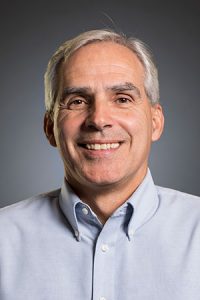 Pedro Arduino
Pedro Arduino
Pedro Arduino, who is the Henry Roy Berg Endowed Professor in Civil & Environmental Engineering at the UW, is an expert in computational geomechanics with emphasis in constitutional modeling of soils, finite element analysis, meshless techniques, soil structure interaction and hazard analysis. He will oversee SoilTech research efforts in landslide and debris flow simulation and soil-structure interaction.
“My research focuses on soil modeling,” Arduino said. “Why do we model soils? A good part of it is to prevent catastrophic failures of infrastructure that we build on top of our soil. These issues typically happen because of dynamic interactions between soil and water. Whether we have an earthquake and get liquefaction of the ground or levee, dam or bridge failures, landslides after floods or massive rainstorms. These are all examples of phenomena that I am working on, modeling soils, and providing a predictive capability.”
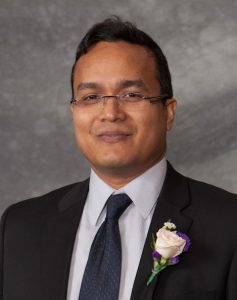 Faisal Hossain
Faisal Hossain
Faisal Hossain, who is the John R. Kiley Endowed Professor in Civil & Environmental Engineering at the UW, is an expert in satellite remote sensing, numerical weather prediction and physical land surface modeling. He will lead research in application of earth science discoveries with engineering technology to reduce social inequalities in availability of food, water and energy.
“In my recent work, I’ve deployed a combination of low-power, wide-area network sensors, and I am working with space agencies in India and Pakistan to track soil moisture and water usage in farmlands. This provides an advisory that sends information directly to the end user — the farmer,” Hossain said. “We have shown that by optimizing just this system alone, the farmer not only saves money on water, but crop yield goes up as well.”
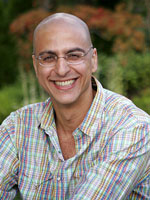 Mehran Mesbahi
Mehran Mesbahi
Mehran Mesbahi, who is the J. Ray Bowen Endowed Professor in Engineering Education in Aeronautics & Astronautics at the UW, is an expert in distributed and networked systems, autonomous aerospace and robotic systems, and the intersection between learning, networks, autonomy and control theory. He will oversee SoilTech research efforts in satellite system development and optimization for soil remote sensing.
“I establish satellite constellations to enable timely and high-quality science measurements from not just one satellite, but many,” Mesbahi said. “Constellations of satellites are increasingly being used for applications such as communications, so I will be leveraging and optimizing what we call ‘distributed sensing from space’ on behalf of SoilTech researchers.”
Members of soil-related industries are encouraged to contact SoilTech to learn more about ways to engage with, support and benefit from the work of the Center. For more information, contact Payman Arabshahi.

